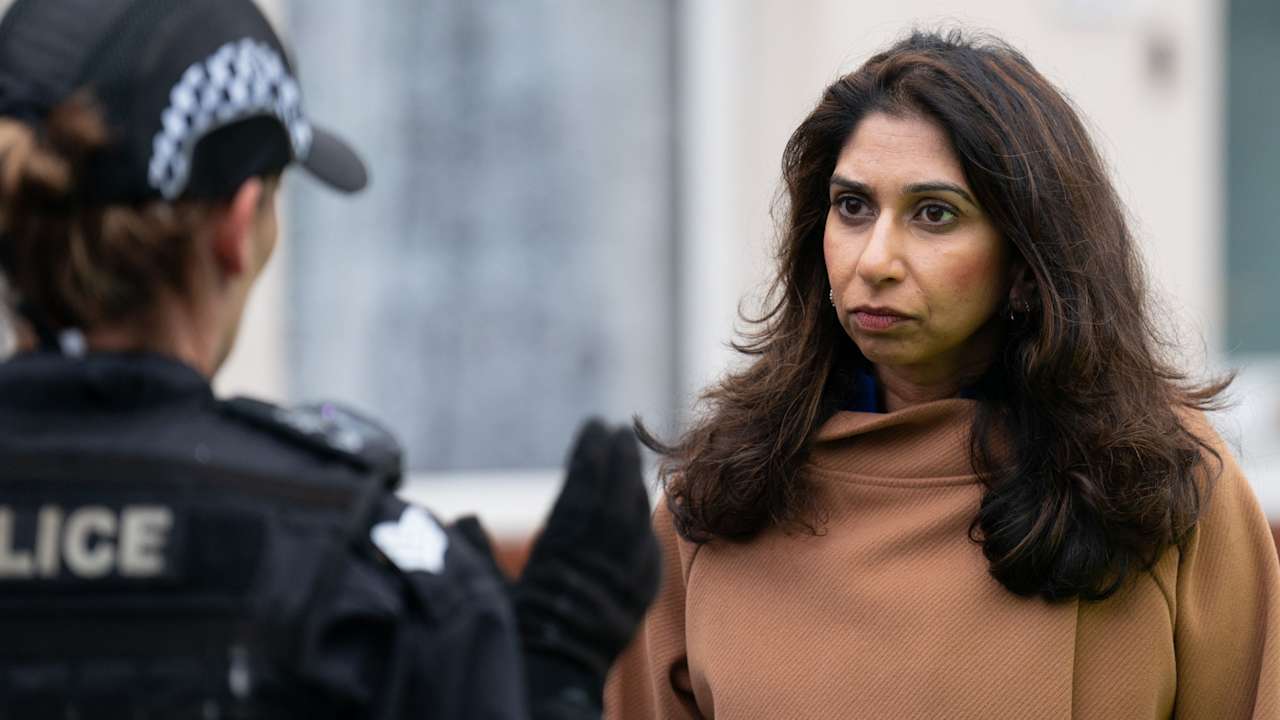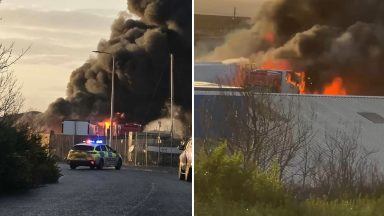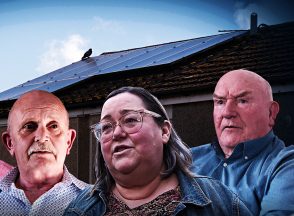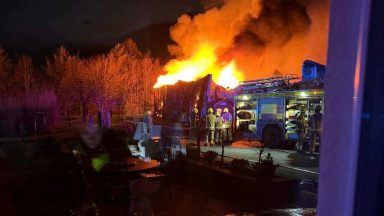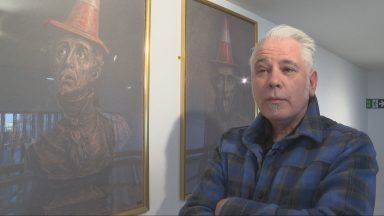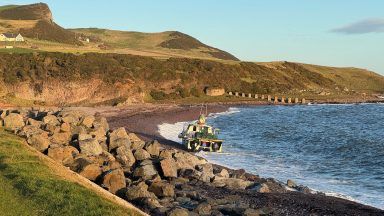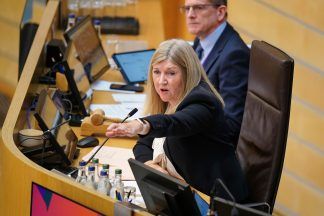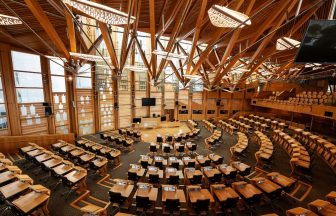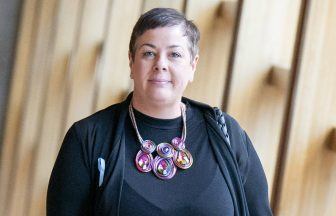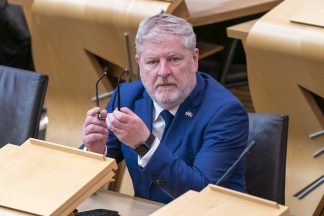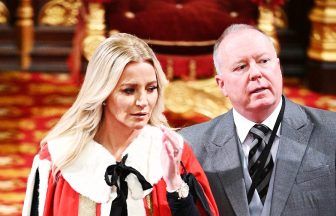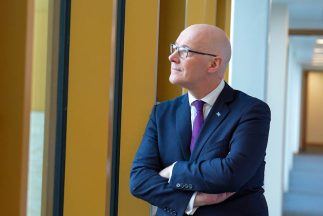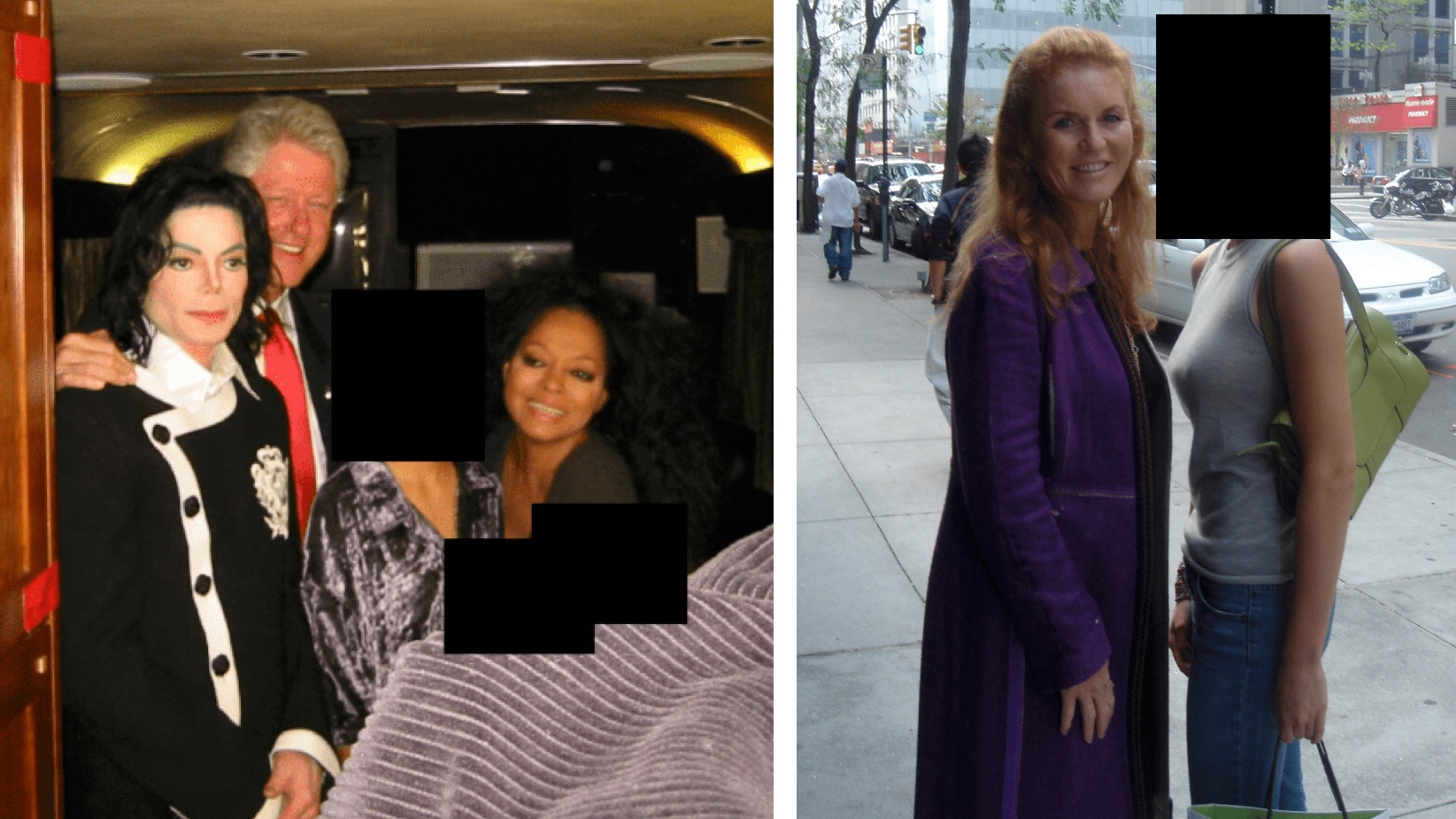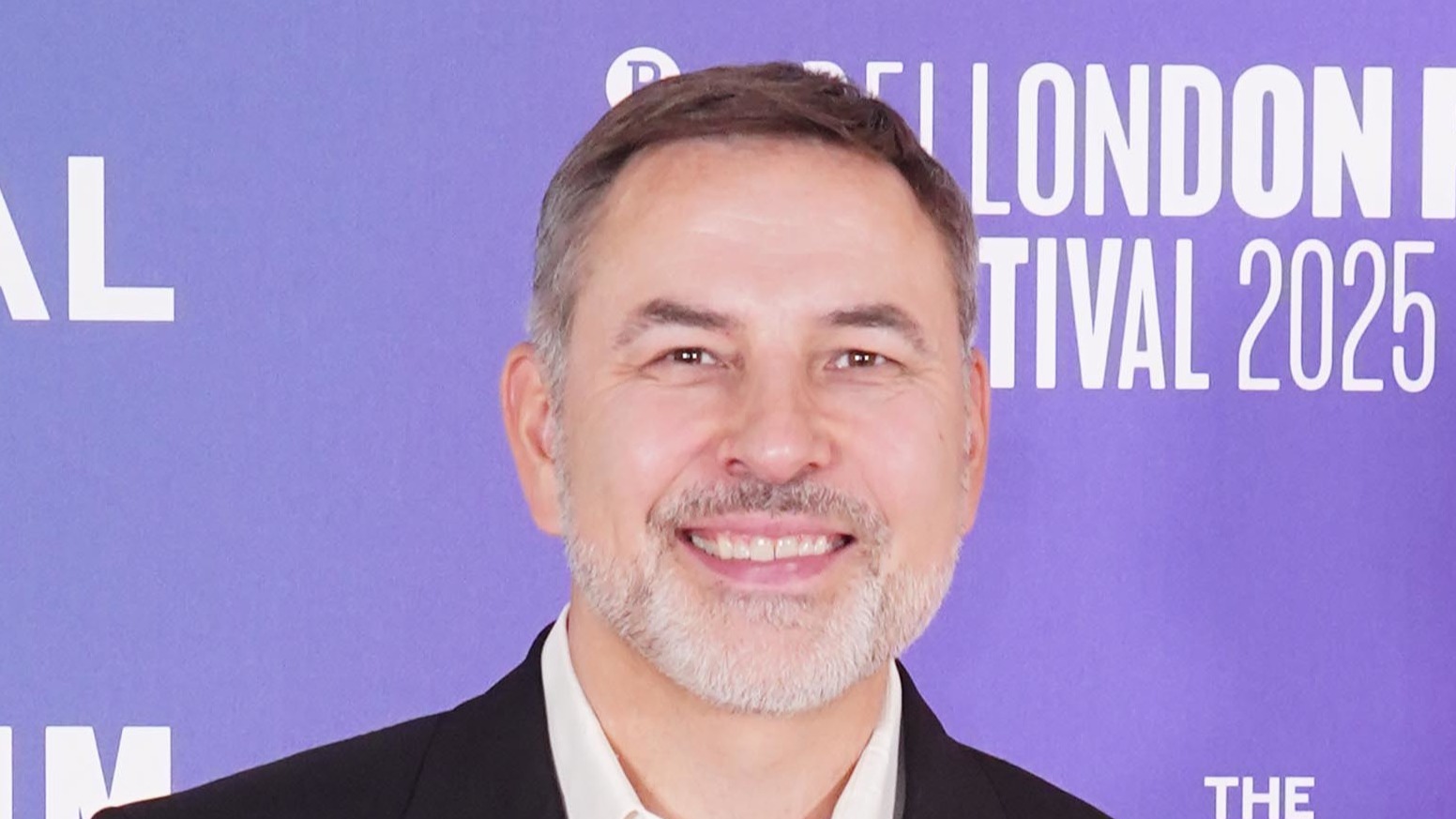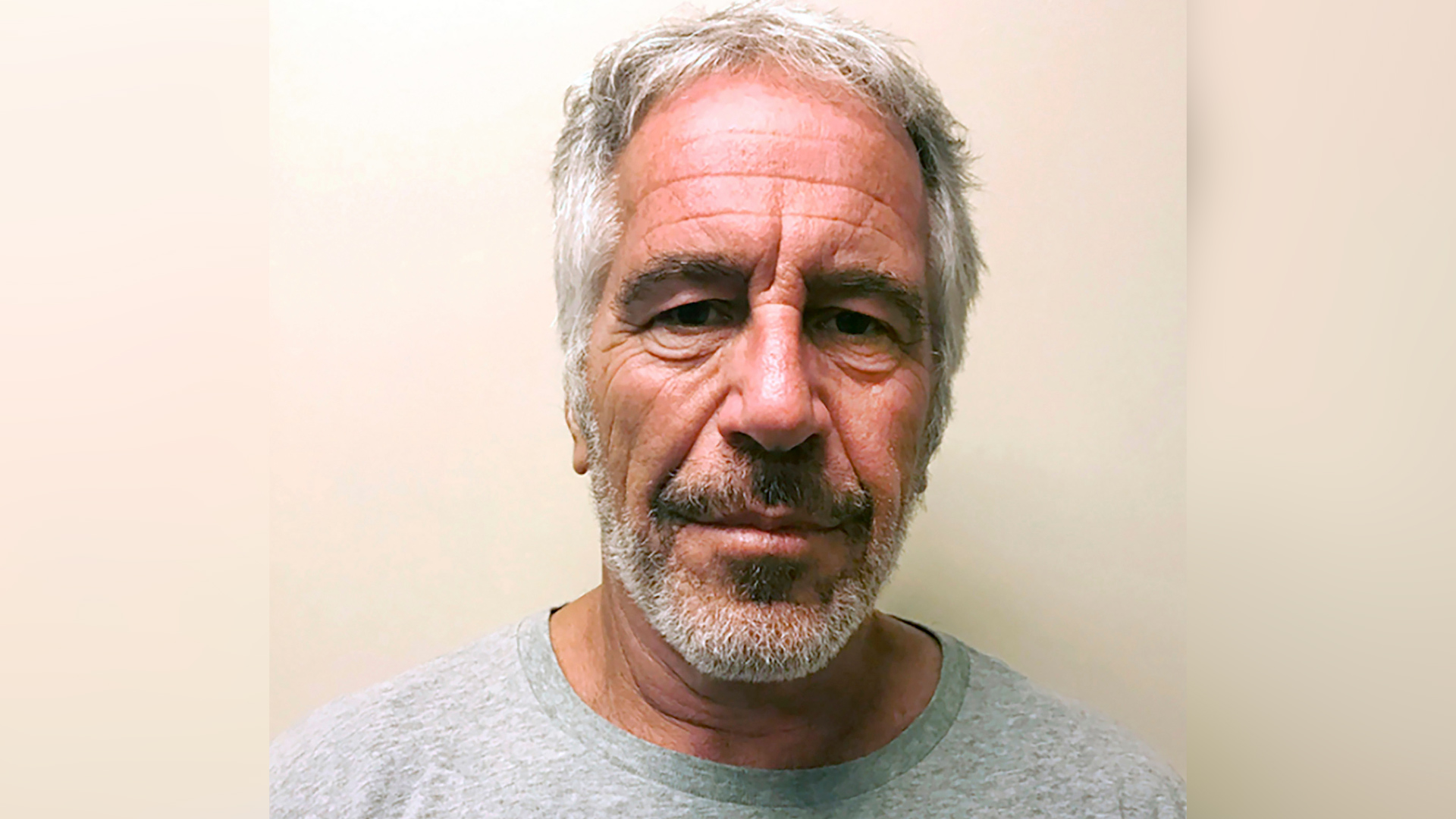Home secretary Suella Braverman has labelled the huge pro-Palestinian rallies across the UK as “hate marches” in comments likely to anger many of the more than 100,000 people who have attended.
Braverman, speaking after an emergency Cobra meeting with Rishi Sunak, police and national security officials, said officers must take a “zero-tolerance approach” to anti-Semitism.
She also confirmed the terror threat level in the UK was not being upgraded from “substantial” to “severe”, despite fears the conflict between Israel and Hamas in the Middle East could lead to domestic attacks.
But Prime Minister Sunak asked police and security services to prepare for and mitigate against any terror threat at the Cobra meeting after Metropolitan Police commissioner Sir Mark Rowley said terrorism is being “accelerated” by the fighting.
Providing an update, Braverman said: “The prime minister chaired a Cobra meeting today, and I briefed him alongside operational leads from policing, counterterrorism and security agencies on the domestic security picture because, of course, keeping the British people safe is my top priority.
“As Sir Mark Rowley himself said, there is an accelerated terrorism threat because of what’s happening and it’s vital that we keep a close eye on the developing situation.”
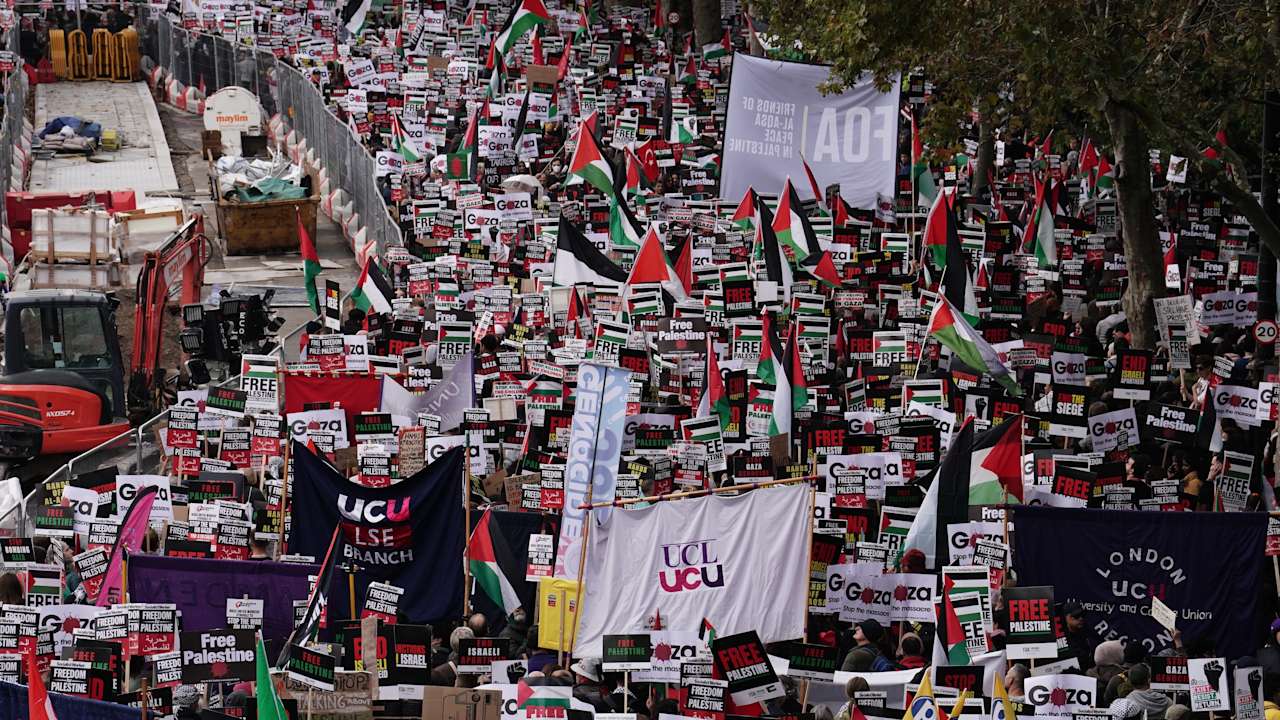
Asked about the threat level, Braverman said: “JTAC, the Joint Threat Assessment Centre, has maintained its [substantial] assessment to date.”
On the pro-Palestinian protests in the capital, she added: “We’ve seen now tens of thousands of people take to the streets following the massacre of Jewish people, the single largest loss of Jewish life since the Holocaust, chanting for the erasure of Israel from the map.
“To my mind there is only one way to describe those marches: they are hate marches.”
Community tensions rise in the UK amid Israel-Hamas conflict
The Cobra meeting also considered intelligence that Iranian agents may be creating unrest in Britain by stoking pro-Palestinian protests, which have been attended by hundreds of thousands of people in recent weeks.
Foreign secretary James Cleverly urged pro-Palestine supporters to be “conscious of disinformation and manipulation” following reports Iran is attempting to use huge rallies in London to sow division.
Fighting in the Middle East, sparked when Hamas launched a deadly attack on Israel on October 7, has opened cultural divisions in the UK.
British Muslims have been critical of senior politicians over what they say has been a lack of support for the Palestinian people – the majority of which are Muslim – who have been living under Israeli bombardment.
Massive protests have been taking place in the British capital to express solidarity with people living in the under siege Gaza strip – but a small minority of attendees have been accused of antisemitism.
Britain’s Chief Rabbi told ITV News that the Jewish community in the UK are more fearful for their safety than at any time since the end of World War II.
Rabbi Ephraim Mirvis said rising antisemitism was causing “very deep pain” and “the fear that’s running through the Jewish community now I think we haven’t had since 1945″.
Met Police chief Sir Mark said the law around hate crime and terrorism may need tightening after a man was allowed to chant “jihad” at a protest in London where a speaker asked: “What is the solution to liberate people from the concentration camp called Palestine?”
He said: “The law that we’ve designed around hate crime and terrorism over recent decades hasn’t taken full account of the ability of extremist groups to steer around those laws and propagate some pretty toxic messages through social media and those lines probably need redrawing.”
The terror threat level in the UK had stood at “substantial” since it was lowered from “severe” in February last year.
What is a Cobra meeting and how is the terror threat rated?
Cobra is an acronym for a series of rooms in the Cabinet Office in 70 Whitehall. It will sometimes be referred to as COBR, which stands for: Cabinet Office Briefing Room.
Unlike a Cabinet meeting – where frontbenchers meet the prime minister – there is no rigid register for who should attend a Cobra meeting and not even Prime Minister Sunak has to attend.
The purpose of a Cobra meeting is to discuss high-level coordination and decision-making in the face of a crisis, according to the Institute for Government.
The crisis could be a range of things, including natural disasters, terrorist attacks, major industrial accidents, and as coronavirus has demonstrated, threats to public health.
While a Cobra meeting may discuss the terror threat, it is set by the Joint Terrorism Analysis Centre and the Security Service.
Threat levels do not have an expiry date. They can change at any time as different information becomes available.
There are 5 levels of threat:
Low – an attack is highly unlikely
Moderate – an attack is possible but not likely
Substantial – an attack is likely
Severe – an attack is highly likely
Critical – an attack is highly likely in the near future
Follow STV News on WhatsApp
Scan the QR code on your mobile device for all the latest news from around the country


